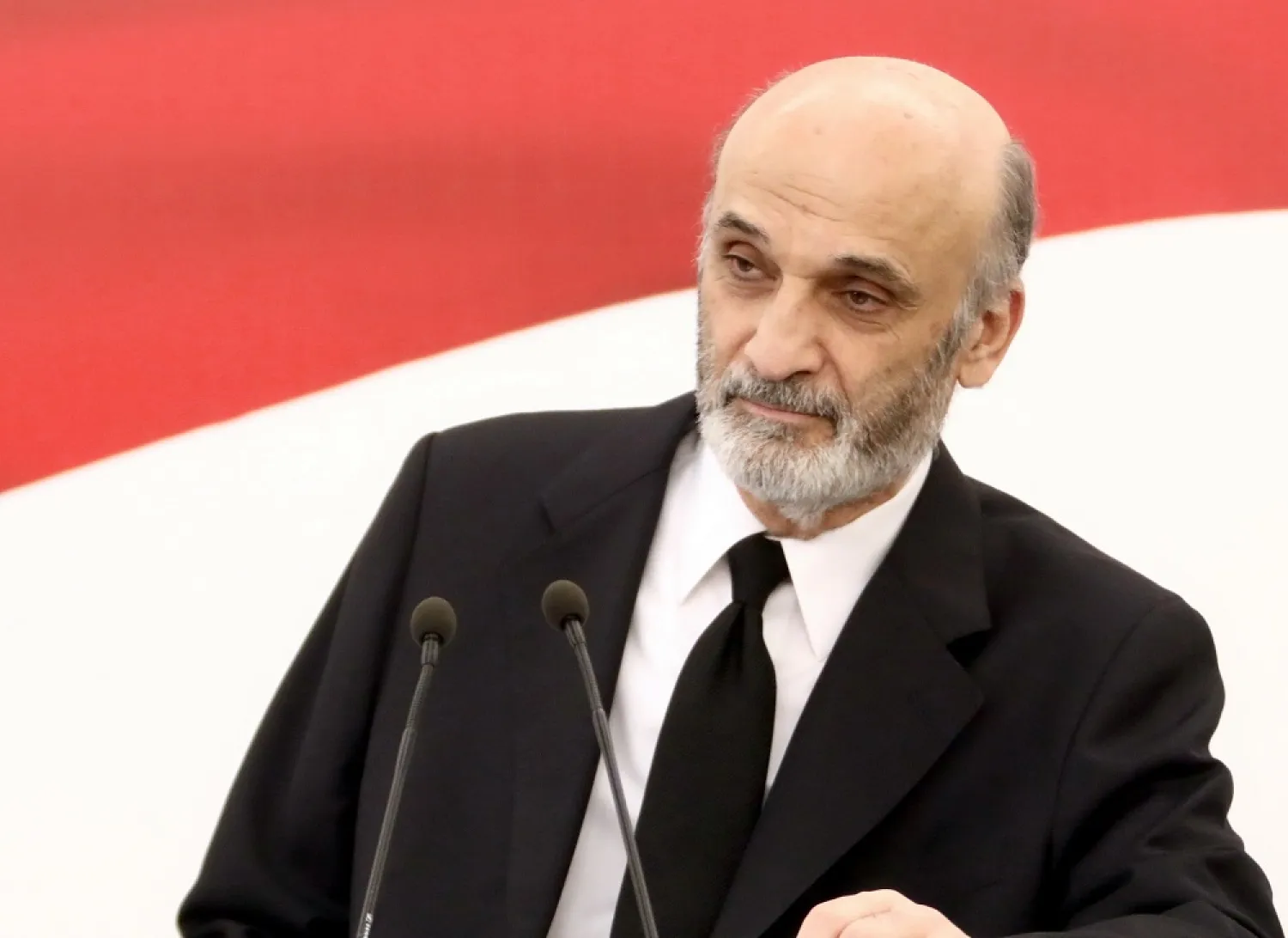Lebanese Forces leader Samir Geagea said that the term of President Michel Aoun “could have been the best” the country has ever seen, “but he squandered the opportunity and led the country to a situation that is unprecedented in its modern history.”
In an interview to Asharq Al-Awsat, he added that the political authority “has lost nearly all Arab and international recognition and credibility.”
“It has taken Lebanon to the lowest of the lows,” he stressed.
On Aoun’s letter to parliament in which he blamed Prime Minister-designate Saad al-Hariri for the failure to form a new government, Geagea said that the message “dashed all hopes for the near birth of a cabinet.”
“The only way out of the current crisis lies in holding early parliamentary elections that forms a new political authority,” he remarked.
On the recent campaign against the LF in wake of Thursday’s clashes with Syrian supporters of their country’s regime, he stated that his party has always called for the safe return of refugees to their homeland.
He noted that refugees do not have political rights in a country where they have sought asylum.
He explained that if the supporters of the regime wanted to vote for president Bashar Assad and see no threat from Damascus, then they can go to Syria and cast their vote there. “What are they doing in Lebanon?” he wondered.
He criticized the refugees for driving in convoys displaying the pictures of Assad and playing anthems in support of the regime in Lebanese regions that have suffered immensely at the hands of Damascus.
“This is totally unacceptable,” he added, while expressing his rejection of the exploitation of refugees for political purposes, “which are completely removed from our principles and convictions and Lebanese sovereignty.”
He rejected accusations that the LF supporters had acted like thugs, saying his party had more than any other in Lebanon “paid the price of peace after the end of the civil war. It is the party that is longing the most to build an effective state of law.”
“When you see your country being violated, then you must make things right. We cannot tolerate the scenes that we saw on Thursday happening again,” Geagea added.
Early elections
On the current crisis in Lebanon, he remarked that the issue was not technical, but rather linked to an entire political authority.
“It is therefore, futile to search for solutions or technical details, because in the end you need political will and intent, both of which are unavailable at the moment,” he explained.
The current authority has lost all of its credibility and has been a complete failure, and it is unlikely to succeed in forming a new government, “which is why we opted out of becoming involved in the process,” Geagea said.
“There is only one solution to the crisis and that lies in reforming the current authority through holding early elections,” he stressed.
Asked how he can reach that goal with the current authority maintaining its unyielding approach, he remarked: “We have no choice but to exert political and media pressure.”
“If a political and popular majority is satisfied with the current situation, then they must deal with the consequences,” he went on to say.
He also ruled out the possibility that next year’s parliamentary elections would be postponed given the intense international and Arab pressure on Lebanon.
“All Arab and foreign powers are prepared to take serious steps towards any Lebanese official who tries to contribute in holding the next polls,” he added.
“Rather, I would say that the elections are inevitable and they will happen due to the massive pressure,” he noted. “However, a new crisis is popping up in Lebanon every day and no one can tolerate another 365 days of such hardships. That is why we will remain committed to demanding early polls.”
Asked why the opposition has failed to properly group and confront the ruling authority, Geagea said that the “so-called opposition forces are no longer so. Rather they are now formed of the LF and Kateb party and some civil society representatives.”
Moreover, Geagea refused to assess the term of President Aoun that ends next year. He said he will leave the assessment up to the people.
“His term could have been the best, but very unfortunately, the opportunity was wasted in 2016 when they went against expectations or what should have been done,” he added.
“This is irrelevant right now. What is relevant is that we all seek to hold early elections. This is our only salvation,” he emphasized.
What if the elections brought the same figures to power? “If after everything the Lebanese people had to endure, they still wanted to vote for the same people they did in 2016, then their fate is in the hands of God,” replied Geagea.
“The people must bear the consequences of their actions, but I believe that they cannot endure more suffering than they had in the past two years,” he added.
“It will be a calamity if they again vote for the same political class. We will therefore, become an unviable society.”










